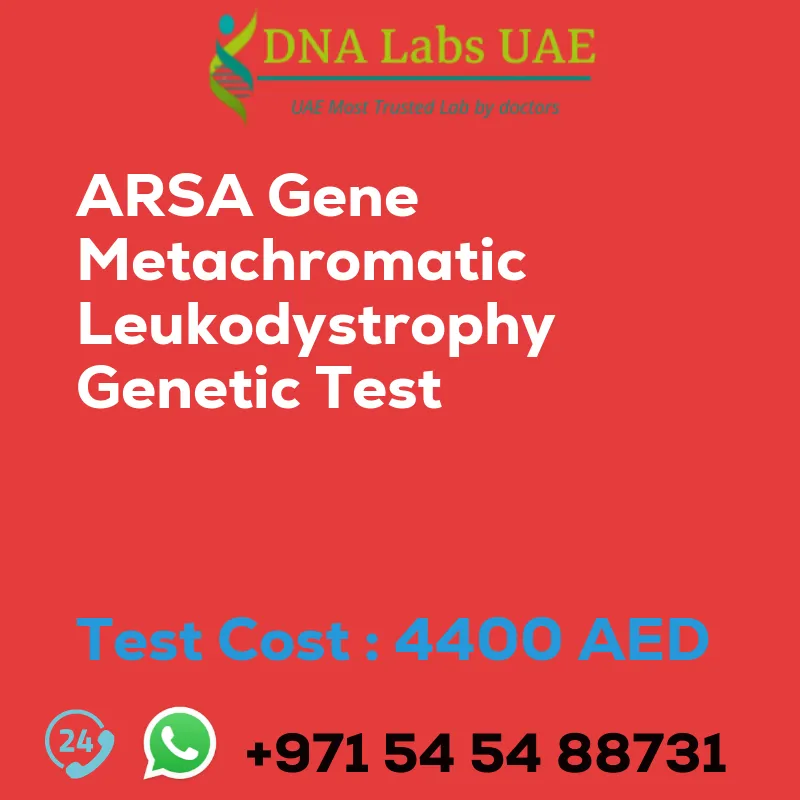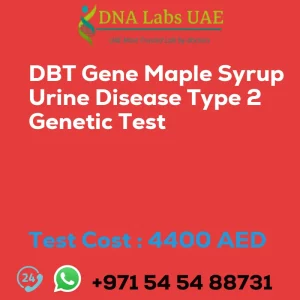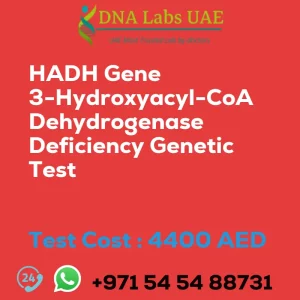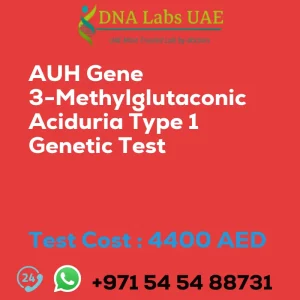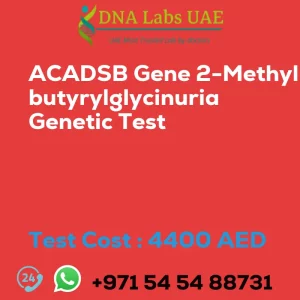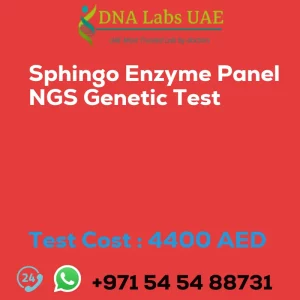ARSA Gene Metachromatic Leukodystrophy Genetic Test
Test Name: ARSA Gene Metachromatic Leukodystrophy Genetic Test
Components: Blood or Extracted DNA or One drop Blood on FTA Card
Price: 4400.0 AED
Sample Condition: Blood or Extracted DNA or One drop Blood on FTA Card
Report Delivery: 3 to 4 Weeks
Method: NGS Technology
Test Type: Metabolic Disorders
Doctor: General Physician
Test Department: Genetics
Pre Test Information: Clinical History of Patient who is going for ARSA Gene Metachromatic Leukodystrophy NGS Genetic DNA Test. A Genetic Counselling session to draw a pedigree chart of family members affected with Metachromatic Leukodystrophy.
Test Details: ARSA gene metachromatic leukodystrophy (MLD) NGS genetic test is a type of genetic test that is used to identify mutations or changes in the ARSA gene. MLD is a rare genetic disorder that affects the nervous system and leads to the progressive destruction of the protective covering of nerve cells called myelin. The ARSA gene provides instructions for producing an enzyme called arylsulfatase A, which is responsible for breaking down a fatty substance called sulfatide. Mutations in the ARSA gene can result in reduced or absent arylsulfatase A activity, leading to the buildup of sulfatide in the body.
NGS, or next-generation sequencing, is a high-throughput DNA sequencing technology that can analyze multiple genes simultaneously. In the case of ARSA gene MLD testing, NGS can be used to identify mutations or changes in the ARSA gene that may be associated with the development of MLD.
The ARSA gene MLD NGS genetic test is typically performed on a blood or saliva sample. The sample is sent to a laboratory where the DNA is extracted and sequenced using NGS technology. The resulting sequence data is then analyzed to identify any mutations or changes in the ARSA gene.
This genetic test can be used to confirm a diagnosis of MLD in individuals who have symptoms consistent with the disorder. It can also be used for carrier testing in individuals who have a family history of MLD or are at risk of being carriers of the disease-causing mutations.
The results of the ARSA gene MLD NGS genetic test can help guide medical management and treatment decisions for individuals with MLD. It can also provide information about the risk of passing on the disease-causing mutations to future generations.
Genetic counseling is often recommended before and after the test to help individuals understand the implications of the test results.
| Test Name | ARSA Gene Metachromatic Leukodystrophy Genetic Test |
|---|---|
| Components | |
| Price | 4400.0 AED |
| Sample Condition | Blood or Extracted DNA or One drop Blood on FTA Card |
| Report Delivery | 3 to 4 Weeks |
| Method | NGS Technology |
| Test type | Metabolic Disorders |
| Doctor | General Physician |
| Test Department: | Genetics |
| Pre Test Information | Clinical History of Patient who is going for ARSA Gene Metachromatic Leukodystrophy NGS Genetic DNA Test A Genetic Counselling session to draw a pedigree chart of family members affected with Metachromatic Leukodystrophy |
| Test Details |
ARSA gene metachromatic leukodystrophy (MLD) NGS genetic test is a type of genetic test that is used to identify mutations or changes in the ARSA gene. MLD is a rare genetic disorder that affects the nervous system and leads to the progressive destruction of the protective covering of nerve cells called myelin. The ARSA gene provides instructions for producing an enzyme called arylsulfatase A, which is responsible for breaking down a fatty substance called sulfatide. Mutations in the ARSA gene can result in reduced or absent arylsulfatase A activity, leading to the buildup of sulfatide in the body. NGS, or next-generation sequencing, is a high-throughput DNA sequencing technology that can analyze multiple genes simultaneously. In the case of ARSA gene MLD testing, NGS can be used to identify mutations or changes in the ARSA gene that may be associated with the development of MLD. The ARSA gene MLD NGS genetic test is typically performed on a blood or saliva sample. The sample is sent to a laboratory where the DNA is extracted and sequenced using NGS technology. The resulting sequence data is then analyzed to identify any mutations or changes in the ARSA gene. This genetic test can be used to confirm a diagnosis of MLD in individuals who have symptoms consistent with the disorder. It can also be used for carrier testing in individuals who have a family history of MLD or are at risk of being carriers of the disease-causing mutations. The results of the ARSA gene MLD NGS genetic test can help guide medical management and treatment decisions for individuals with MLD. It can also provide information about the risk of passing on the disease-causing mutations to future generations. Genetic counseling is often recommended before and after the test to help individuals understand the implications of the test results. |

